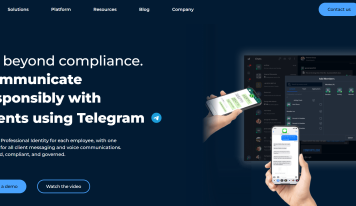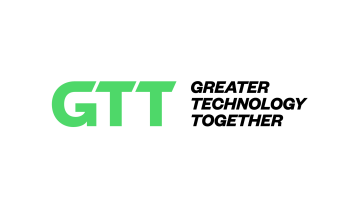For those of you in telecom for decades you remember how in the mid-nineties Dialogic was the major company producing hardware and software building blocks in what we called the computer telephony/CTI spaces. They provided the market with DSP resource boards which at first powered simple voicemail systems but as Microsoft and Novell tried to muscle their way into the communications space, the world realized for the first time that telecom was becoming open and companies like Dialogic had the tools to convert analog signals into digital form and back.
A few years later the company was purchased by Intel and the brand became diluted and the company for all practical purposes fell off the radar. As an industry insider it was shocking really as an entire ecosystem of partners all of a sudden had to market and push product on their own. Many were unprepared as Dialogic had been the fuel which powered these partners in years past.
Intel for its part later realized that telecom components were not their core market and eventually spun the division out to EiconNetworks which was headed up by charismatic CEO Nick Jensen. Jensen then proceeded on a buying spree picking up Cantata and NMS while keeping the Dialogic name.
But while rolling up the voice and fax world has kept Nick busy, many of us know his real passion is video. At the most recent Dialogic One conference I attended in October 2008 in San Diego Nick was as passionate about the move to video as I have ever heard him when he proclaimed video is the new voice.
In May of 2010, Dialogic announced its latest merger candidate, Veraz Networks and I explained how the company is using this acquisition to get a further foothold in the carrier market. Now that the news is official, I had a chance to discuss the implication of the acquisition in more detail. Nick will remain as CEO and Doug Sabella of Veraz Networks will be the new COO. The combined company has revenues greater that $250M and Dialogic shareholders will own approximately 70% of the new company with Veraz shareholders owning 30%.
In my conversation, Jensen continued the focus on video I am so used to by mentioning the importance of DML or Dialogic Media Labs – the division of the company responsible for next generation IP video applications by developing software for video advertising, quality measurement, image tracking, and improved video quality. He further explained how the voice market has been effectively rolled up with some smaller players left and video is a primary focus.
Nick is the video visionary in the communications market and has been talking about the opportunity longer than anyone I know and he continues to stay on message with consistent thoughts on how carriers and developers have a massive opportunity ahead of them. One area of growth is over-the-top video such as a consumer would watch on an iPhone or Android handset.
But the opportunity while large in the US where bandwidth is relatively abundant is potentially even greater in a country like India where 3G auctions yielded wins of 5 MHz spectrum blocks which have limited capacity.
Jensen believes this market will see more user-generated content as opposed to YouTube as the handset is the center of the user’s universe. He further thinks these markets will be transaction based meaning an increasing opportunity for carriers to monetize their technology investments.
We then briefly discussed the downfall of Dilithium Networks the other major company in the field of mobile video transcoding. Dilithium is restructuring and is evidently out of cash as it waits for large Indian and Chinese carriers to pay them for their equipment. Nick used this example to explain that to sell video gateways; a company needs to have a broad portfolio of products, a broad carrier footprint and scale. Moreover he added that being a simple video and transcoding provider is not enough, it is the transizing and transrating which is becoming more important and is also more complex.
Moreover video analytics are important since you must be sure of what is in the video stream to generate quality advertising revenue and provide streams which haven’t been compromised by hackers and others with malicious intent. He said this becomes increasingly important as user-generated content needs to be controlled so porn isn’t accidentally seen by minors.
This is why video fingerprinting is important to Dialogic and we can expect to hear more about this technology from the company going forward.
He then took a moment to contrast the US video market where we are able to stream video to other countries such as India, South America and Eastern Europe where there is more carrier innovation. He discussed carriers which provide the ability to stop a video stream of a sporting event in order to allow the purchase of a jersey worn by a player you are watching. Specifically in India the company is seeing applications such as video SMS, video callback and video sharing applications as worthy of notice.
Nick says soon the video business will be in the double-digit millions of dollars and they will subsequently break it out [as a separate line item]. This relatively low number explains why Dilithium Networks is struggling to make money from a single product line.
This gets us to Veraz and the reason for this deal. One of the primary motives according to Jensen is having a publically traded currency to do even more deals. I asked about why an IPO didn’t make more sense and he replied that they would have done this deal anyway. Since we don’t have the most exciting IPO market these days there is logic in this decision but one never knows if an IPO would have yielded a cash inflow not provided by this transaction. Then again, Veraz has plenty of cash according to Jensen.
Another key reason for the deal has to do with bandwidth optimization where Veraz has a 20-1 compression ratio with minimal to no voice degradation. In a world where wireless bandwidth is in short supply, having solutions which can effectivelycompress video becomes quite important. Expect this technology to come to a video stream near you (especially if you live in India).
The final reason for interest in Veraz is the company’s session border control technology. It seems more and more of the conversations I have these days are from companies who believe they can take significant share from Acme Packet. And when I am not speaking to these companies, I get calls from investors and research firms on a semi-regular basis asking my opinion on Acme Packet’s future performance.
As the world moves to SIP trunking and more enterprises realize the need for more secure IP communications I see the SBC market rife with opportunity. I also see a slew of companies entering the market and putting downward pressure on prices.
I don’t think Acme is in any imminent danger but they also haven’t spent the resources on the branding needed to defend their $2B market cap. Then again if a slew of competitors start to come on strong they can likely react quickly.
One of the major areas of concern I hea
rd from the analyst community is whether SBC functions will meld into the gateway market. Frankly I don’t know if this will happen but history tells us that fixed-function boxes generally evolve and consolidate into multifunction devices. Jensen definitely sees this merger of boxes happening and thinks the combination of forensics, analytics and gateways is where we are headed. Moreover, he believes the relationships Dialogic has worldwide can now be leveraged to boost sales of SBCs and other Veraz products.
Other areas of our discussion focused on the delisting notice sent to Veraz because of a share price which has been under a dollar for 30 or more consecutive days. He believes the market is always right (very smart comment) but he hopes it doesn’t reflect the value of the Dialogic acquisition. The company has also registered for the ticker symbol DLGC which was the old Dialogic symbol in the 90s.
My analysis is as follows… Video is a huge opportunity and monetizing it is not easy as we have seen from the challenges at Dilithium. Then again, if the company doesn’t make it through, it leaves the field wide open. The session border control market is tougher. Acme has sewn it up nicely and they have the power of incumbency as well as a long feature list which keeps many customers loyal. But this doesn’t mean there isn’t room for a number of new players in the space as the market expands. Can Dialogic become a formidable competitor? Perhaps but it will take time and Acme Packet won’t stand still.
Nick is a deal maker, visionary and understands the global markets well. With cash flowing in from so many lines of business in so many countries, what investors in Dialogic will own is a company which is well-diversified and has very large marketshare in voice and fax ports. In addition, with superior (eventually) video compression technology and SBC solutions which to date have been a well-kept secret, the opportunity for this company to grow quickly is real.
And Dialogic has been successful with prior acquisitions meaning they are able play competitive cards which most tech companies cannot. So I see the merger as a strong positive for both companies as well as customers and investors.





